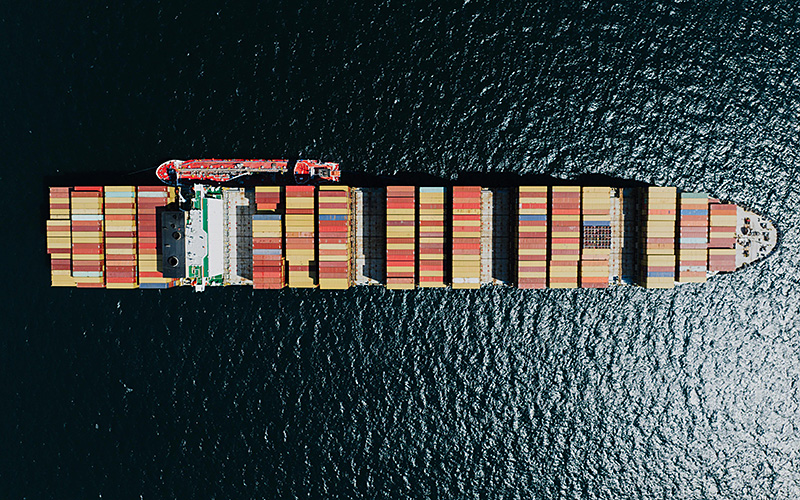
Türkiye at a Crossroads: Navigating Economic Challenges and U.S. Tariff Opportunities
As global trade undergoes a seismic shift, Türkiye finds itself uniquely positioned—challenged at home by persistent economic pressures, yet courted abroad by changing dynamics in international commerce. The country’s struggle with inflation continues to strain households and investors alike, yet a silver lining may have emerged from an unlikely source: Washington, D.C.
On April 2, the United States unveiled a sweeping new tariff structure, recalibrating its approach to trade with dozens of nations. For Türkiye, which faces a relatively modest 10 percent tariff on its exports to the U.S., the move may offer a rare economic opening. While major manufacturing hubs such as China and Indonesia now face levies of over 30 percent, Türkiye stands to become a more attractive partner for American firms seeking new supply chain options.
Yet for this opportunity to translate into real economic gains, Ankara must address challenges at home—starting with inflation.
A Fragile Recovery, Threatened by Inflation
As of February 2025, Türkiye’s inflation rate stands at 39.05 percent—still painful, though a modest improvement from January’s 42.12 percent. The Turkish lira continues to weaken, eroding purchasing power and heightening uncertainty. The Central Bank has projected a decline in inflation to 24 percent by year’s end, but the path there will demand fiscal discipline and clearer signals to markets.
To make meaningful progress, policymakers may need to:
-
Sustain higher interest rates to temper price growth;
-
Rein in public spending and stabilize key sectors such as energy and food;
-
Restore confidence in monetary governance, particularly among foreign investors.
These efforts, if successful, could enhance the competitiveness of Turkish goods abroad—especially in the U.S. market, where affordability increasingly shapes sourcing decisions.
Trade Winds and Strategic Realignment
In contrast to high-tariff regions now facing headwinds, Türkiye’s export profile—anchored in textiles, automotive components, and consumer electronics—makes it a viable alternative for U.S. firms diversifying away from Asia. But remaining competitive requires more than geography.
Improving product quality, complying with American standards, and cultivating direct ties with U.S. buyers will be critical. So too will be diplomatic engagement: relations between Ankara and Washington, D.C. have weathered their share of turbulence in recent years, but the new trade landscape offers common ground for recalibration.
Diversification as Economic Strategy
Türkiye’s long reliance on construction, textiles, and tourism has left its economy vulnerable to external shocks. To build greater resilience, the government may need to prioritize:
-
Technology-driven industries such as electric vehicles, renewable energy, and defense manufacturing;
-
Agricultural exports, particularly to North America, where food security concerns remain high;
-
Innovation ecosystems that support small businesses, startups, and research institutions.
Stability as a Prerequisite
Recent political developments have sparked protests and raised questions about the direction of Türkiye’s governance. While domestic tensions remain largely contained, the broader perception of political uncertainty poses a significant risk, particularly for foreign investors and trade partners who value predictability.
To unlock its economic potential and gain international trust, Türkiye must prioritize stability and transparency in both its political and economic institutions. This includes:
-
Maintaining a stable and accountable political system that upholds democratic norms and rule of law;
-
Rebuilding and strengthening relationships with Western allies, particularly the United States and the European Union;
-
Advancing legal and regulatory reforms designed to create a more business-friendly environment and reassure global markets.
In an era where trust is currency, Türkiye’s ability to project reliability could prove just as valuable as any trade agreement or tariff advantage.
A Manufacturing Magnet?
As the U.S. imposes new barriers on imports from key Asian economies, some companies may seek to circumvent tariffs by relocating production. Türkiye—with its skilled workforce, customs union with the EU, and proximity to major markets—could emerge as an alternative hub.
Incentives such as tax holidays, industrial free zones, and streamlined regulatory frameworks could help entice multinationals to set up operations. For Türkiye, the payoff could be significant:
-
Foreign Direct Investment: New factories could inject billions into the economy;
-
Employment Growth: Manufacturing expansion would generate jobs in urban and industrial regions;
-
Technology Transfer: Advanced production methods would elevate Türkiye’s industrial base;
-
Export Leverage: The country could position itself as a key player in transatlantic trade.
The Stakes of Transformation
This is a moment of recalibration—for Türkiye, for U.S. trade policy, and for the global economy writ large. The new tariffs represent more than a fiscal maneuver; they mark a potential redrawing of supply chains, political alignments, and economic identities.
For Türkiye, the stakes are especially high. Inflation remains stubborn, and structural reforms are overdue. Yet the opportunity is real: if Ankara can steady its domestic economy while seizing the opening in global trade, it may yet transform crisis into catalyst.
Strategic Caution in Foreign Investment
As Türkiye positions itself as an alternative manufacturing hub amid shifting global trade currents, officials must tread carefully in deciding which foreign investments to welcome. While the 10% U.S. tariff rate currently places Türkiye in a favorable trade position, that advantage could be jeopardized if the country inadvertently becomes a backdoor for companies from heavily sanctioned nations.
For example, should Türkiye allow significant Chinese investment in manufacturing aimed at exporting to the U.S., Washington may view it as an attempt by China to circumvent its 34% tariff rate—an outcome that could invite scrutiny or even prompt a reevaluation of Türkiye’s own tariff treatment. Similar risks apply to investment flows from other nations facing steep U.S. tariffs. In many respects, these new measures function not merely as economic penalties, but as targeted forms of pressure resembling modern-day embargoes.
To maintain its unique status and avoid entanglement in broader geopolitical disputes, Türkiye must develop a discerning investment strategy—one that maximizes industrial growth while safeguarding its privileged access to the American market. This will require strong regulatory oversight, transparent investment vetting mechanisms, and a clear long-term trade policy aligned with global compliance standards.
A Defining Moment for Türkiye
As the global economy recalibrates in response to the new U.S. tariffs, Türkiye finds itself at a critical juncture. Navigating this landscape will require not only bold economic reforms and diplomatic finesse, but also a strategic vision that prioritizes long-term resilience over short-term gains. If Türkiye can strike the right balance—managing inflation, ensuring political and regulatory stability, and cultivating trusted trade partnerships—it has the potential to transform this period of global disruption into a new era of economic strength and international relevance.





